As a parent, I always look for toys that prioritize safety and durability while also promoting my child’s development. That’s why I am drawn to the enduring appeal of wooden Montessori toys.
These timeless treasures have stood the test of time, captivating children’s imaginations for generations. Made from natural and sustainable materials, they offer a nostalgic warmth and simplicity that is hard to find in today’s tech-focused world.
But it’s not just about nostalgia – these toys foster creativity, problem-solving skills, and fine motor development.
Join me as we explore the fascinating world of wooden Montessori toys and uncover the many benefits they offer for our children’s growth and development.
Key Takeaways
- Wooden Montessori toys are known for their safety and suitability for children of all ages.
- They have a rich history dating back to the early 1900s and have played a crucial role in Maria Montessori’s hands-on approach to education.
- These toys promote open-ended play, fine motor skills, and cognitive development.
- Wooden Montessori toys offer a timeless appeal, fostering creativity, imagination, and emotional advantages such as nostalgia, warmth, and simplicity.
The Safety of Wooden Montessori Toys
I believe that wooden Montessori toys are a safe choice for children due to their durable design and use of natural materials. When it comes to potential hazards, wooden toys have an advantage over plastic or electronic toys.
Plastic toys can break easily, posing a choking hazard, while electronic toys can have small parts or batteries that can be harmful if swallowed. In contrast, wooden Montessori toys are designed to withstand rough play and are less likely to break into small pieces.
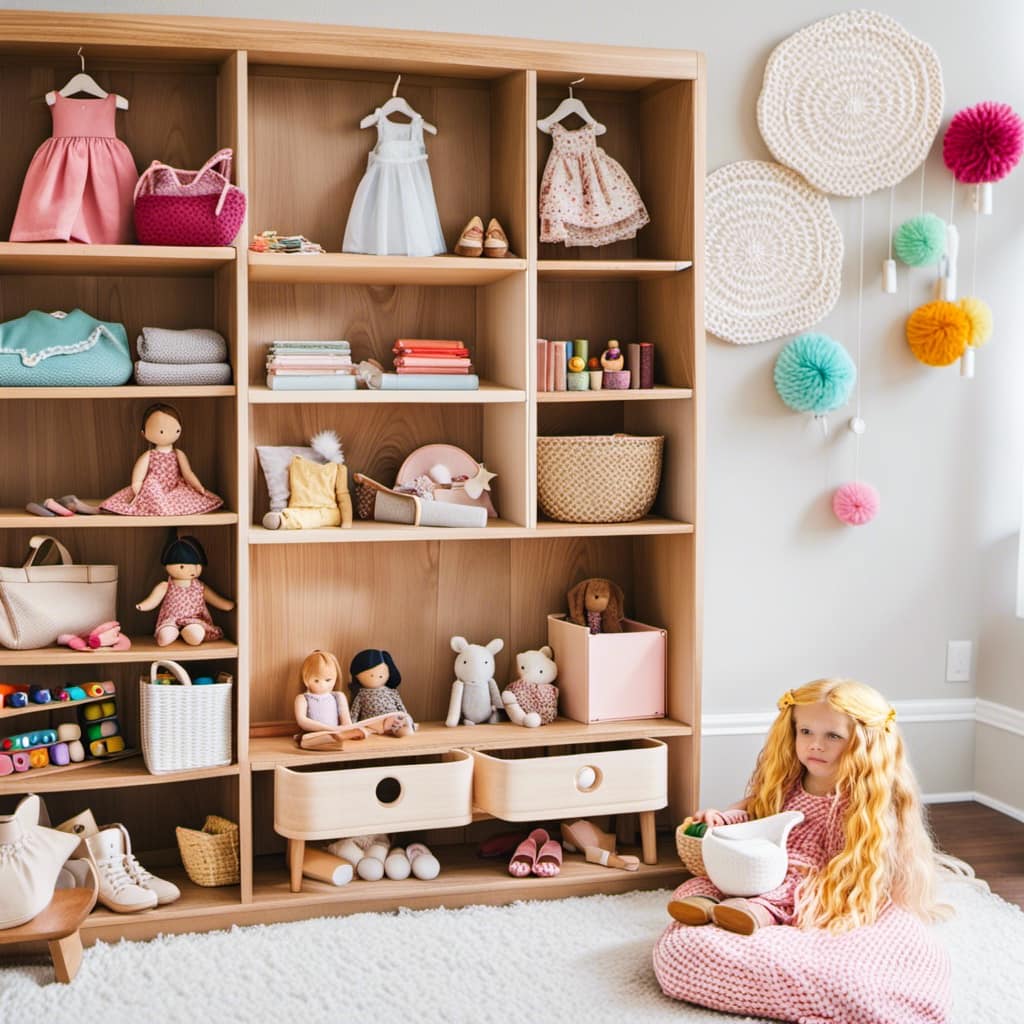
Additionally, the use of natural materials eliminates the risk of harmful chemicals often found in plastic toys. By comparing the safety of wooden Montessori toys to other materials, it is clear that wooden toys provide a safer option for children to play with.
The History and Legacy of Wooden Montessori Toys
Maria Montessori revolutionized education with her hands-on approach, and the use of wooden toys played a crucial role in her innovative methods.
The impact of wooden Montessori toys on education is significant. These toys have a rich history, dating back to the early 1900s, and they continue to captivate children’s imaginations.
Wooden Montessori toys are not just toys; they hold cultural significance. They engage children’s senses, promote cognitive and physical development, and foster creativity, problem-solving skills, and fine motor development.
These toys encourage open-ended play, sparking imaginative and creative play. They provide a solid foundation for children’s growth and development.
Wooden Montessori toys have a timeless appeal that fosters creativity and imagination. They are eco-conscious and made from natural and sustainable materials.
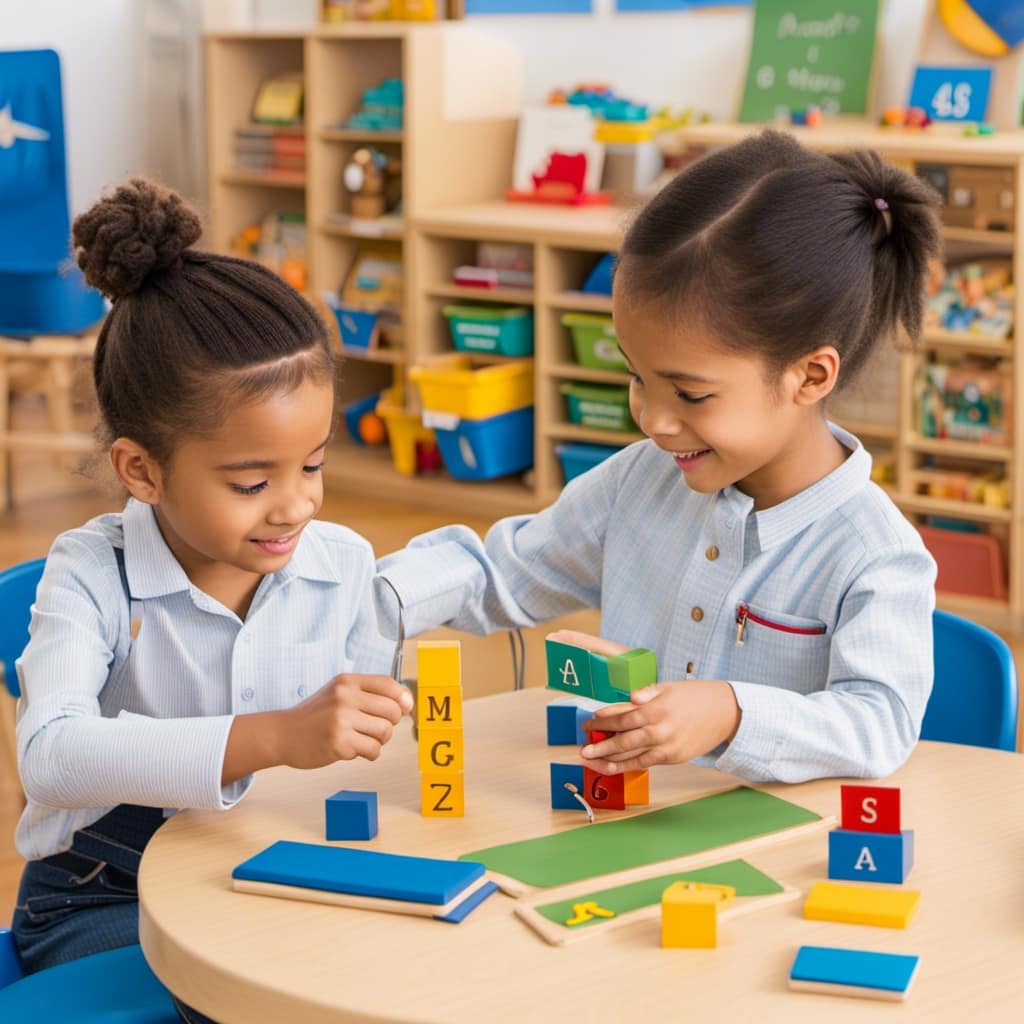
Overall, wooden Montessori toys have had a profound impact on education and continue to be an integral part of children’s learning experiences.
The Benefits of Wooden Montessori Toys
Using wooden Montessori toys has numerous advantages for children’s development and creativity.
-
Open-ended play: Wooden Montessori toys encourage children to use their imagination and create their own narratives, fostering creativity and problem-solving skills.
-
Sensory experience: These toys offer a tactile experience, allowing children to explore different textures, shapes, and weights. This sensory exploration enhances their cognitive development and spatial awareness.
-
Emotional benefits: Wooden Montessori toys evoke a sense of nostalgia, warmth, and simplicity. They create a connection to nature and promote a sense of calm and tranquility.
Research has shown that open-ended play with wooden Montessori toys promotes fine motor skills, hand-eye coordination, and cognitive abilities. By engaging in imaginative play, children develop language skills, social skills, and communication abilities. Exploring the sensory experience with these toys enhances their overall development and creates a foundation for lifelong learning.
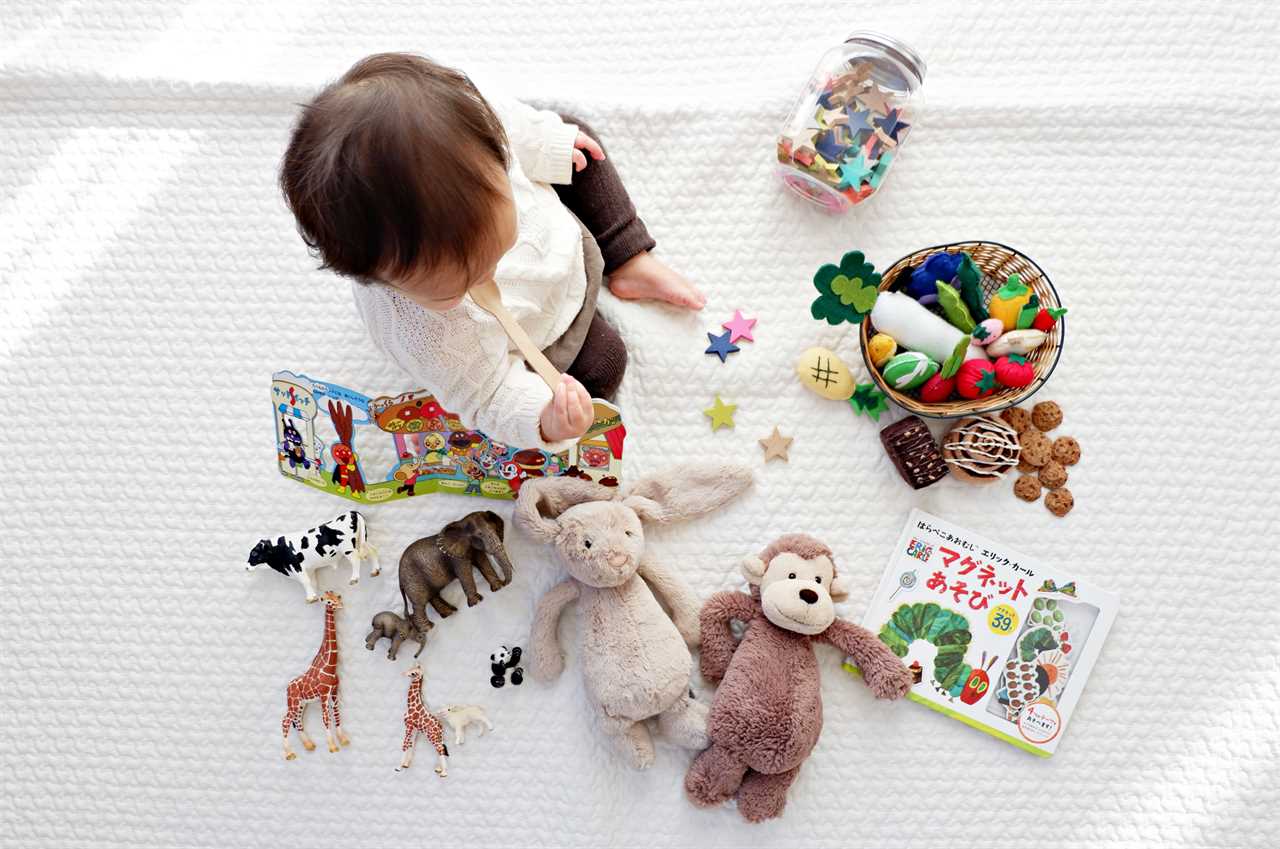
Maintaining and Caring for Wooden Montessori Toys
Regular maintenance is crucial for ensuring the longevity and quality of wooden Montessori toys. Proper care and cleaning of these toys not only preserve their beauty but also keep them safe for children to play with. Here are some tips to maintain and clean wooden Montessori toys:
| Maintenance Tips | Cleaning Tips |
|---|---|
| Check for loose parts or damage regularly | Use a soft cloth or brush to remove dust |
| Avoid exposure to moisture and direct sunlight | Use a mild soap and water solution for deeper cleaning |
| Periodically oil or seal the wood to protect it from drying out | Avoid soaking the toys in water |
| Store the toys in a dry and well-ventilated area | Allow the toys to air dry completely before storage |
The Versatility of Wooden Montessori Toys
Exploring the versatility of these educational playthings, I am amazed at how wooden Montessori toys can engage children’s senses and promote their cognitive and physical development. These toys offer a multitude of benefits that make them a valuable addition to any homeschooling curriculum.
The sensory benefits of wooden Montessori toys provide children with a tactile experience that stimulates their senses and enhances their sensory development.
Incorporating wooden Montessori toys into homeschooling curriculum fosters open-ended play, allowing children to use their imagination and creativity to explore and learn.
These toys promote fine motor skills, hand-eye coordination, and cognitive abilities, giving children a solid foundation for their growth and development.
Research shows that the use of wooden Montessori toys in homeschooling can have a significant impact on children’s social skills, cooperative play, and communication development.

The durability and eco-conscious nature of these toys make them a worthwhile investment for any homeschooling family.
The Timelessness of Wooden Montessori Toys
As we navigate through the digital age, where technology seems to dominate every aspect of our lives, there is something truly special about the timelessness of wooden Montessori toys.
In a world where screens and gadgets are prevalent, these toys offer a much-needed break from the digital realm and provide a sensory experience like no other.
The natural textures, warmth, and earthy scents of wooden toys engage multiple senses, allowing children to fully immerse themselves in the tactile world. This sensory stimulation is crucial for their cognitive and physical development.
Furthermore, the simplicity and durability of wooden toys ensure that they can be enjoyed for generations to come.
In an era of fleeting trends and ever-changing technology, the enduring appeal of wooden Montessori toys reminds us of the importance of timeless play experiences that foster imagination and creativity.
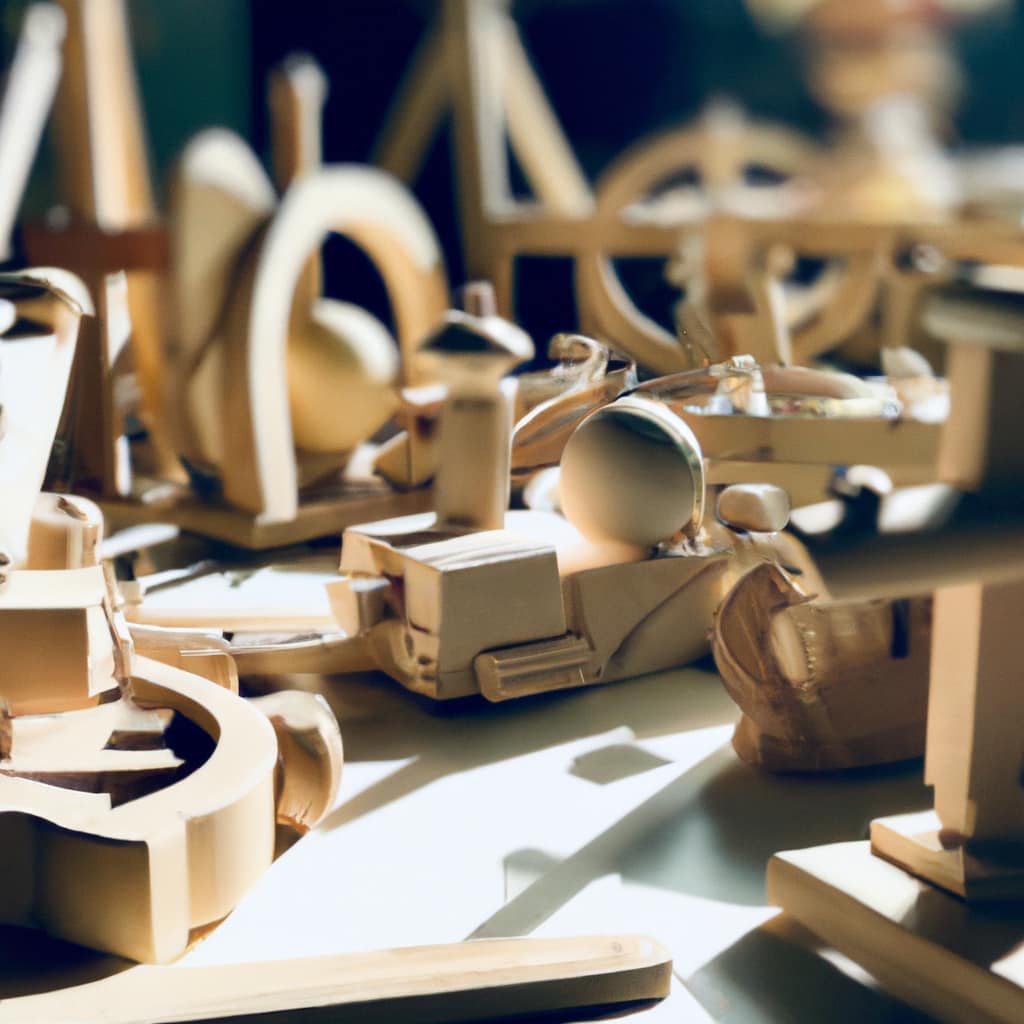
The Environmental Consciousness of Wooden Montessori Toys
I’m amazed by the environmental consciousness that wooden Montessori toys embody. These toys are not only beneficial for children’s development but also have a positive impact on the environment. Here are three reasons why wooden Montessori toys are eco-friendly:
-
The eco-friendly manufacturing process: Wooden Montessori toys are made from sustainably sourced wood, reducing the demand for plastic materials. The wood used is often organic and free from harmful chemicals, making it safe for children to play with.
-
The impact on sustainable parenting choices: By choosing wooden Montessori toys, parents are making a conscious decision to reduce their carbon footprint. These toys are long-lasting and can be passed down from generation to generation, reducing waste and promoting a more sustainable lifestyle.
-
The biodegradability factor: Unlike plastic toys that end up in landfills and take hundreds of years to decompose, wooden Montessori toys are biodegradable. When they reach the end of their life cycle, they can be easily disposed of without harming the environment.
Wooden Montessori toys not only provide endless opportunities for learning and development but also contribute to a greener and more sustainable future.
The Cognitive Developmental Impact of Wooden Montessori Toys
As we have discussed the environmental consciousness of wooden Montessori toys in the previous subtopic, it is important to explore their cognitive developmental impact as well. Wooden Montessori toys offer numerous cognitive benefits and developmental advantages for children.
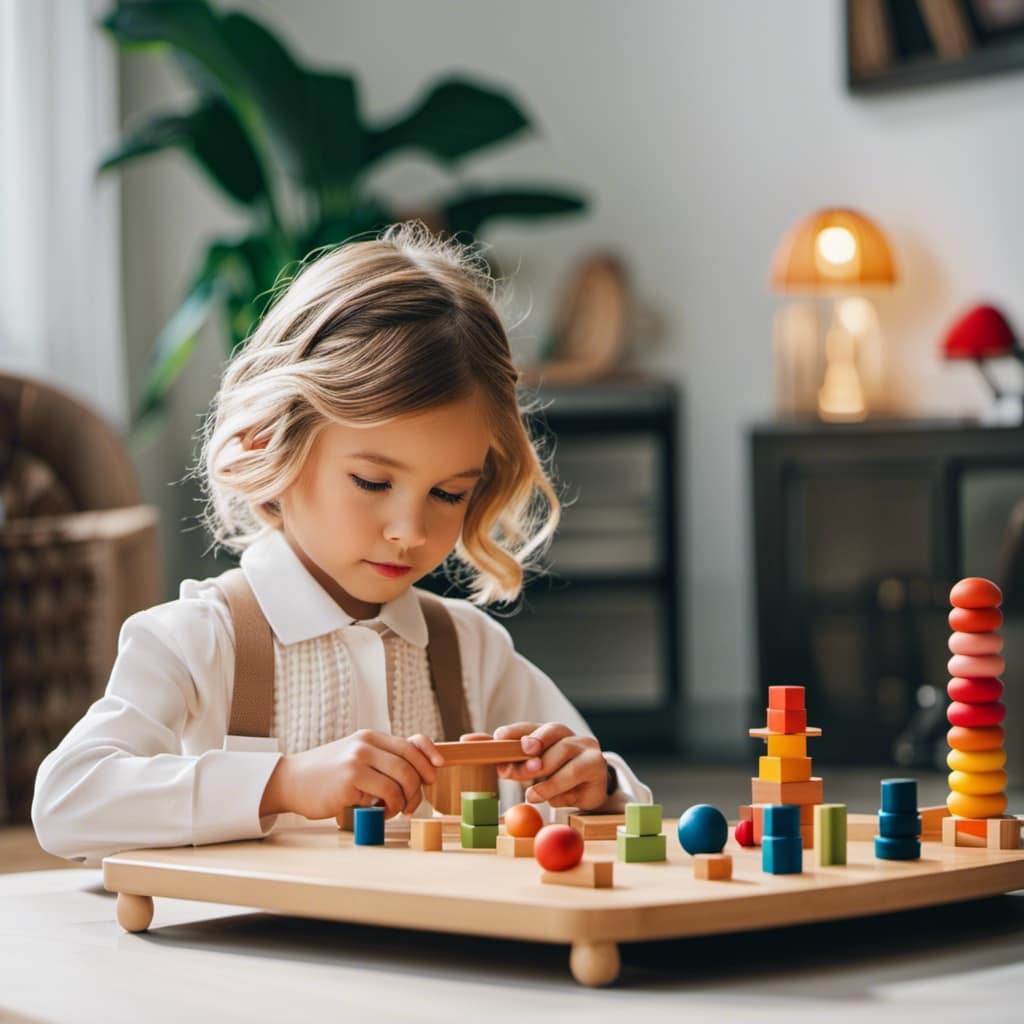
These toys are specifically designed to engage children’s senses and promote cognitive and physical development. They encourage open-ended play, sparking imaginative and creative thinking. The tactile experience they provide enhances fine motor skills, hand-eye coordination, spatial awareness, and cognitive abilities.
To further illustrate the cognitive benefits and developmental advantages of wooden Montessori toys, I have created a table below:
| Cognitive Benefits | Developmental Advantages |
|---|---|
| Enhances problem-solving skills | Promotes creativity and imagination |
| Stimulates logical thinking | Fosters cognitive and physical development |
| Improves memory retention | Supports language and communication development |
| Develops concentration and focus | Enhances social skills and cooperative play |
| Encourages decision-making skills | Cultivates independence and self-confidence |
Through the use of wooden Montessori toys, children can experience a holistic approach to learning that nurtures their cognitive development and provides them with valuable skills for their future.
The Social and Emotional Benefits of Wooden Montessori Toys
Engaging in open-ended play with these versatile educational tools fosters the development of social and emotional skills in children. Wooden Montessori toys have a profound impact on social skills and emotional development, shaping children’s abilities to empathize and express themselves.
-
Empathy: Playing with wooden Montessori toys allows children to engage in imaginative play, which helps them understand and relate to different perspectives and emotions.
-
Self-expression: These toys provide a platform for children to express their thoughts, feelings, and ideas through storytelling and role-playing.
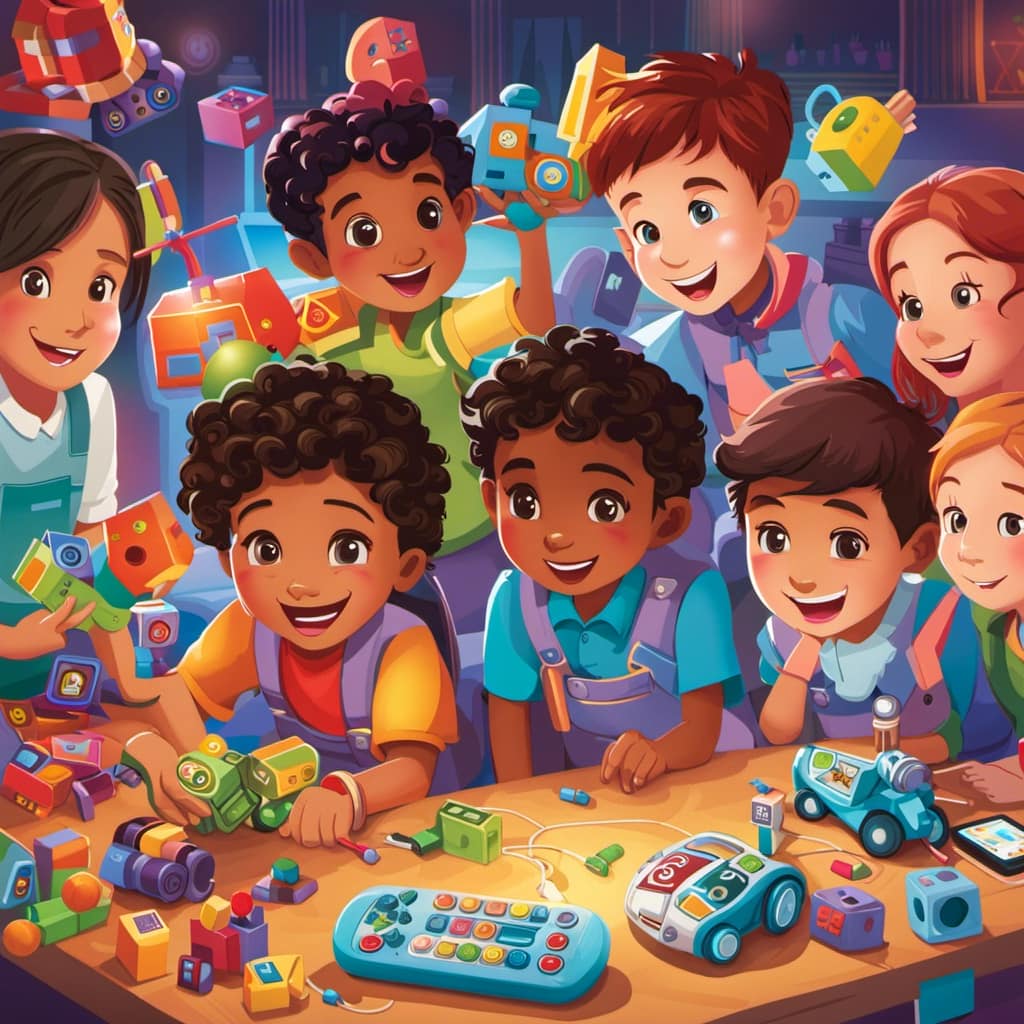
-
Cooperation: Wooden Montessori toys encourage cooperative play, teaching children how to take turns, share, and collaborate with others.
Research shows that engaging with wooden Montessori toys helps children develop a strong foundation in social skills, empathy, and self-expression. These skills are crucial for their overall emotional well-being and healthy relationships.
Frequently Asked Questions
Are Wooden Montessori Toys Suitable for Children With Special Needs?
Yes, wooden Montessori toys are suitable for children with special needs. They offer benefits for sensory development and can be chosen based on individual needs. They provide a tactile experience and promote fine motor skills, cognitive abilities, and social interaction.
Can Wooden Montessori Toys Be Used in Outdoor Play?
Yes, wooden Montessori toys can be used in outdoor play. They offer outdoor benefits such as promoting exploration and nature appreciation. Additionally, their durability and sustainability make them suitable for outdoor environments.
What Are Some Alternative Materials Used in Montessori Toys Besides Wood?
Some alternative materials used in Montessori toys besides wood include natural fabrics, metal, and non-toxic plastics. While wooden toys have their benefits, these materials can provide different textures and sensory experiences for children’s play and learning.
How Do Wooden Montessori Toys Compare to Electronic Toys in Terms of Cognitive Development?
In terms of cognitive development, wooden Montessori toys provide more sensory stimulation and fine motor skills development compared to electronic toys. Digital screen exposure may have a negative impact on cognitive development in children.
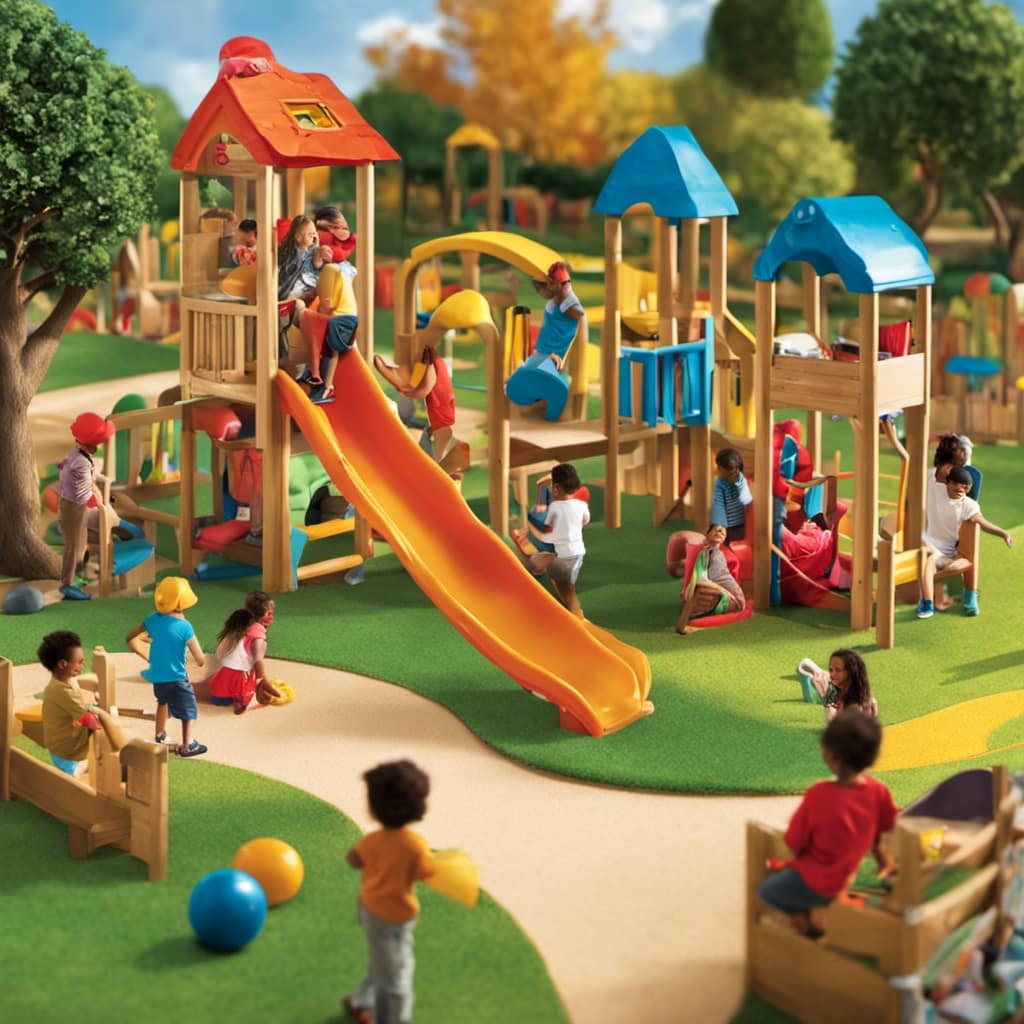
Are There Any Specific Safety Certifications or Standards That Wooden Montessori Toys Adhere To?
There aren’t specific safety certifications or standards for wooden Montessori toys, but they are known for their safety and durability. They are suitable for special needs children and can be used for outdoor play. Alternative materials like plastic or electronic toys don’t offer the same benefits for cognitive development.
Conclusion
In conclusion, wooden Montessori toys have proven to be a timeless and versatile option for children’s play.
Research has shown that these toys not only promote cognitive and physical development but also offer emotional benefits such as nostalgia and simplicity.
Interestingly, a study conducted by the American Academy of Pediatrics found that children who regularly engage in open-ended play with wooden toys have been shown to have better problem-solving skills and creativity.
With their enduring appeal and numerous benefits, wooden Montessori toys continue to captivate children’s imaginations and provide a solid foundation for growth and development.










